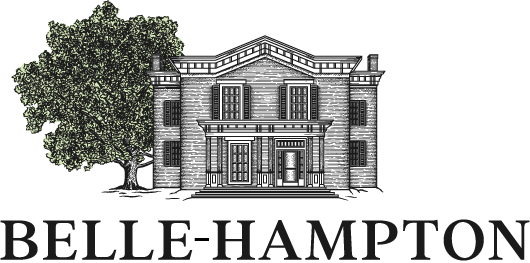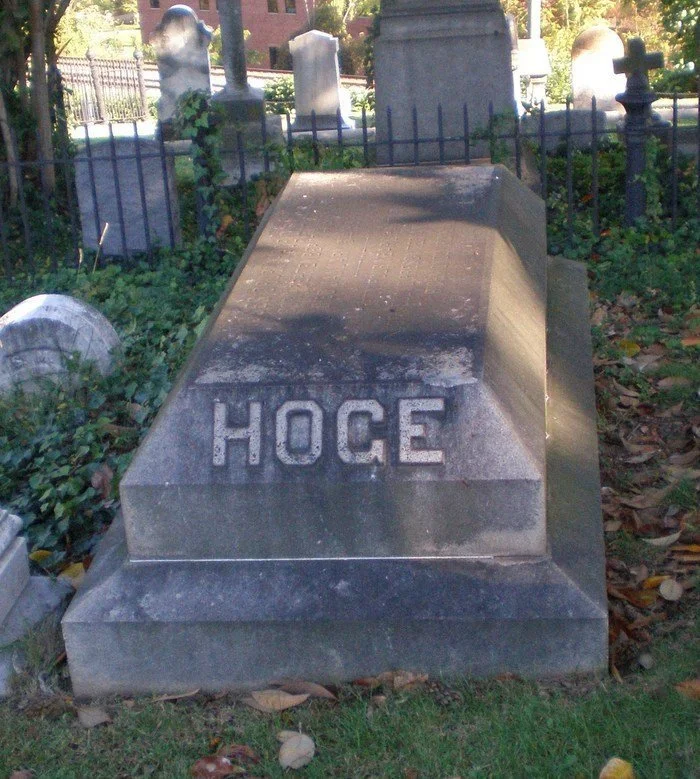Rev. Moses Drury Hoge, DD: One of the Greatest Men of Faith
Grave of Rev. Moses Drury Hoge, Hollywood Cemetery, Richmond, VA
Rev. Moses Drury Hoge, DD, one of the soundest thinkers and most eloquent preachers of his day, rests among presidents and other leaders in the Hollywood cemetery in Richmond, VA. Situated on the James River, this cemetery is recognized as the most prominent burial place in Virginia. The President’s Circle is the final resting place for the 5th President of the United States, James Monroe, and the 10th President of the United States, John Tyler. Six Virginia governors, two Supreme Court justices, and other notables who have significantly influenced history rest in peace there. Rev. Hoge is amongst his fellow influential Virginians, celebrated as a great man of faith.
As a student for life, he was an avid reader and developed intense mental concentration, often taking his vacations in the library. Early in his education, he attended Hampden-Sidney College, where his father and grandfather also served in various positions and as president. Shortly into his career, he also earned his D.D. (Doctor of Divinity) from there. After the war, he received his L.L.D. (Honorary Degree) from Washington and Lee University and his D.D. from Princeton.
He was the first paster to the Second Presbyterian Church in Richmond, VA, where he served for fifty -four years. He literally built the church from the ground up, serving on the building committee where they decided on the unique Gothic Revival style. But he also served through the tumultuous time of the Civil War when Richmond was transformed from a small farming town to an industrious city and the capital of the Confederacy.
When President Lincoln blocked supplies to the South during the Civil War, and Bibles were scarce, Rev Hoge took action. As his brother William suggested, Rev. Moses Hoge traveled to Europe to secure Bibles for the soldiers. He had to risk his life going through the blockade to acquire these prayer books. Their project started among the Presbyterians and became an interdenominational effort. The anxiety of capture or death seemed imminent, but the cause was a worthy objective.
Rev. Moses Hoge successfully convinced the English to contribute 10,000 Bibles, 25,000 Testaments, and 250,000 biblical passages to the soldiers of the Confederacy. He even traded Confederate bonds to British citizens to raise money for the church. One member of his Congregation remarked, “His devotion to the Confederate cause equally matched his devotion to God.” Though he was a servant of God, Hoge risked his life and religious practice by running the Union blockade.
Moses Hoge was also a chaplain for Camp Lee, also known as Camp of Instruction. Camp Lee was a training camp in the early part of the war and consisted of several buildings that appeared to have been used for barracks and then hospital purposes later in the war. He saw firsthand the multitudes of injured soldiers losing arms and legs then, only to contract dysentery in the unsanitary conditions.
Coming from a long line of remarkable orators, he has been described as the most eminent citizen of Virginia. He chose ministry as a profession but was a person of high integrity and sincere convictions during a time that tried men’s souls, the Civil War. He delivered countless sermons to Confederate soldiers and leaders. Stonewall Jackson, Robert E. Lee, and Jefferson Davis were among his congregation and people he considered friends.
During the ugliest times in American history, he preached “without fear and reproach.” Although he eventually supported the Confederate cause, he abhorred slavery. His calling was to care for the souls of the soldiers. He saw the horrors of the battlefield up close, understanding that these young men needed the word of God.
When Stonewall Jackson was injured, Mary Anna, his wife, was lodging at the Hoge’s. She learned of her husband’s wound and rushed to him, but he died soon after she arrived. Thomas “Stonewall” Jackson’s death was a massive blow to the church and state; he was a profoundly religious soldier and statesman.
On April 3, 1865, a Sunday morning with most residents in church, ministers received word that Richmond would be evacuated since the Union broke through the Confederate lines. Moses Hoge read the note he received, resumed, and finished his sermon, reminding his congregation, “God is with us in the storm as well as the calm.” Along with President Davis and many others, Rev. Moses Hoge took the last train out of town.
After the war, Rev. Hoge’s sermons were in demand throughout the North and South. Queen Victoria even requested him to preach before her. According to J. Hoge Tyler, “Few men thoroughly absorbed in work have ever traveled so much at home and abroad.”
In 1875, a statue of General "Stonewall" Jackson was unveiled in front of a crowd of 40-50,000. Rev. Moses gave, in part, the following dedication with hopes of facilitating the reunification of the South:
“In the story of empires of the earth, some crisis often occurs which develops the genius of the era and impresses an imperishable stamp on the character of the people. Such a crisis was the Revolution of 1776 when thirteen thin-settled and widely-separated colonies dared offer the gage of battle to the most significant military and naval power on the globe…
After innumerable reverses, and incredible sufferings and sacrifices, our father came forth from the ordeal victorious…
But this day, we inaugurate a new era…We come to honor the memory of one who was the impersonation of the Confederate cause…And at last, it is Jackson’s clear, ringing tone to which we listen:
‘What is life without honor? Degradation is worse than death. We must think of the living of who will come after us and see that by God’s blessing; we transmit to them the freedom we have enjoyed.’
“Heaven, hear the prayer of our dead, immortal hero.”
Northern newspapers recorded Rev. Moses Hoge’s speech as supporting the Lost Cause. It was a popular altering to present this war as a second coming of the American Revolution. However, Rev. Hoge contended that they are honoring a hero who represents a time of a split nation. He wanted to let Stonewall Jackson’s statue symbolize what we should never allow to happen again, a divided nation at war.
Hoge stated, “When men can appeal to Heaven, as our fathers of the Revolution did, for the justice of their cause, and invoke the aid of the God of Battles, then will a nation become as illustrious as in the gentle arts of peace… We are not revolutionists—we are resisting revolution.”
The Civil War was called the War of Disunion or Northern Aggression by Southerners. Some believed that the South supported states’ rights, while the North federal supremacy. Historians debate if the Civil War was not about slavery at all. But that might have been an attempt to wipe out a difficult time when the goal was the reconstruction of a country.
In the 1900s, Peyton Harrison Hoge compiled the book, “The Perfection of Beauty and Other Sermons.” This is a collection of sermons that Rev. Moses Hoge has written over all his years of preaching. Scholars have chosen the work as socially essential and part of Christian civilization's knowledge base. Not once did Rev. Hoge refer to a position on the Civil War or comment about the present times. The unknown question is, did he have an opinion he preached about during his service, or was it erased from history as being sensitive material? Or were his close relationships with the Confederate leaders due to his impassioned belief in the word of God and taking no judgment of them or their cause?
“One cannot and must not try to erase the past merely because it does not fit the present.” Golda Meir
Unfortunately, we cannot change the past to meet the current times. But during social unrest in 2020, the statues were removed from Monument Avenue in Richmond. This act went to the courts, where it was deemed acceptable. Prominent heroes on the “wrong” side of victory met disgrace worse than their death, as Stonewall Jackson prophesized.
Do these men of honor deserve such disrespect? They served their country bravely and with conviction for what they perceived as a noble cause. Moses Hoge, who saw the horrors of the Civil War firsthand, believed these statues were symbols of a cruel war that should remind us of what we should never go through again: unification, not the disunion of the United States of America.
To see through the eyes of love versus hate makes all the difference. Rev. Moses Drury Hoge will be remembered as “the most loving, diligent, and tender pastor” by those that have heard his “eloquent proclamation of glad tidings of salvation presented with an invitation of the Gospel.” Rev. Moses Hoge is one of the greatest men of faith.

